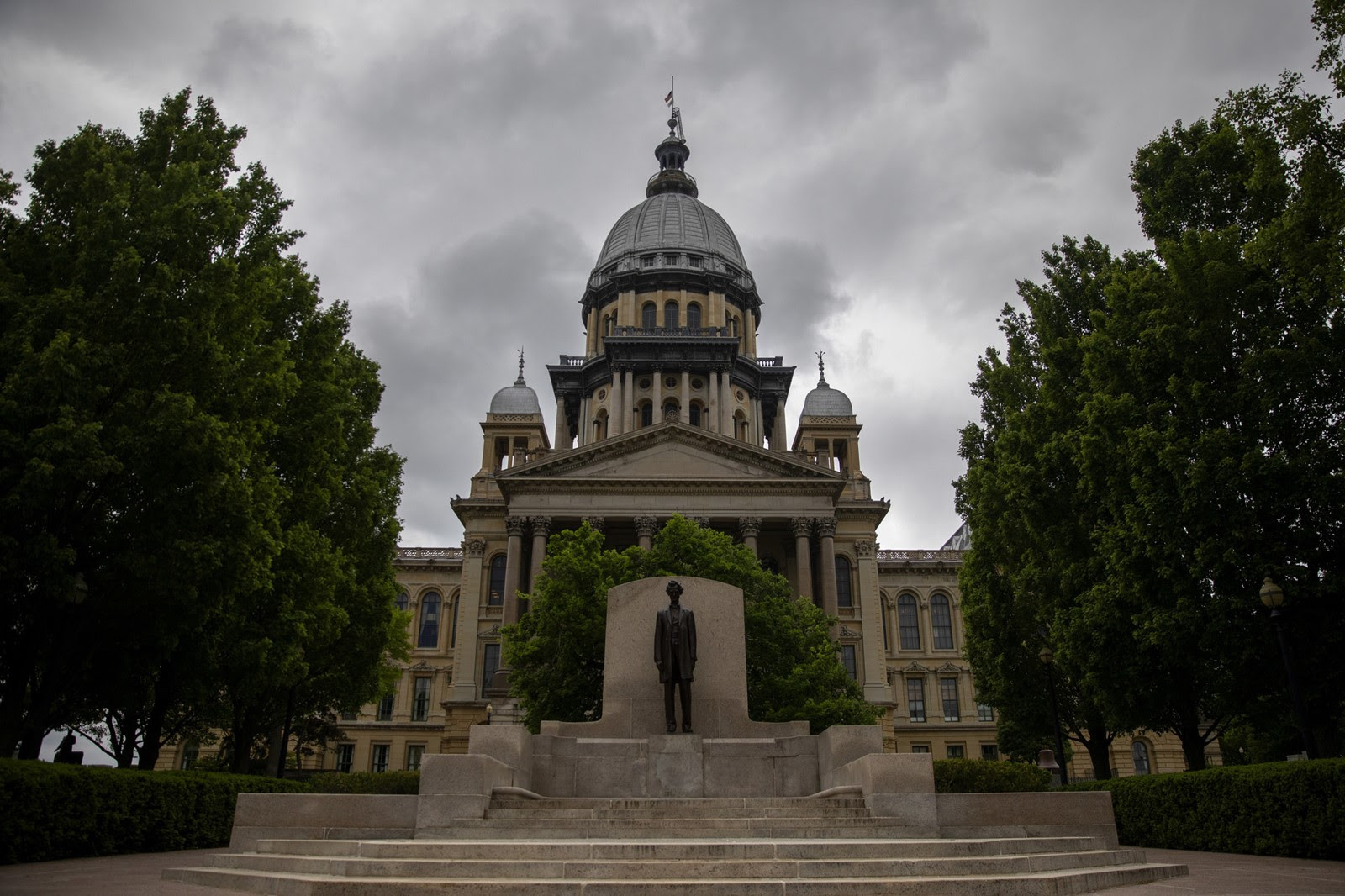
The Illinois Capitol building in Springfield. Erin Hooley/Chicago Tribune 2020
Submitted by Andrea A. Raila
Except for Missouri, every state that surrounds Illinois — Wisconsin, Indiana, Kentucky and Iowa — is a right-to-work state. That means workers in those states cannot be coerced by unions at their workplace into joining and paying union dues.
There’s another way to refer to states with right-to-work laws. They’re pro-job growth states. Pro-economic development states. Pro-stable business environment states.
Illinois isn’t a right-to-work state. It is, however, run by Democrats heavily aligned with organized labor, which is why lawmakers voted to put on the 2022 ballot a measure that would enshrine into the state constitution a ban on right-to-work laws — and more.
Keep in mind lawmakers won’t put on the ballot term limits, a pension clause rewrite or fair redistricting amendments for us to vote on and which are wildly popular. But moneyed labor jumps to the front of the line.
The referendum language would ban any law or local ordinance that “interferes with, negates, or diminishes the right of employees to organize and bargain collectively,” and bans any law or ordinance that prohibits the execution or agreements between employers and unions that require union membership as a condition of employment.
Part of that effort is moot under the U.S. Supreme Court’s 2018 Janus decision, which originated in Illinois and allows workers to decide whether to join a union. But putting a ban on right-to-work into our constitution — the only state to do so if approved — would be a mistake. The amendment if approved would, essentially, put into our state’s constitution a provision that would make Illinois even less desirable for employers and heighten the provisions of collective bargaining agreements to constitutional rights.
The referendum is slated for the Nov. 8, 2022, ballot. The measure becomes state law if at least 60% of voters back the measure, or if it’s backed by a majority of those casting a ballot in the election.
Consider this the first of a series of editorials that will explain why voters should ensure this referendum suffers the same fate as Gov. J.B. Pritzker’s fair tax amendment — defeat at the ballot box. Until lawmakers give voters what they actually want, what they’ve fought for through several citizen initiatives for term limits and remap reform, voters should turn back a movement that benefits organized labor at the expense of everyone else.
We’ve argued right-to-work laws — if they’re too offensive for our beholden-to-unions politicians to enact statewide — should be considered for certain regions of the state where industry has left town and decades of decay means no one else is coming. There is no reason, for example, why polluted industrial sites in Chicago and elsewhere should not be considered for right-to-work zones to encourage an employer to invest.
And if Democrats are looking for referendum initiatives that actually would benefit Illinoisans, we’re more than happy to supply ideas:
Nothing weighs down Illinois’ climb out of its financial quagmire like the pension crisis. The state’s unfunded pension liabilities now top $140 billion, according to the Bond Buyer website. That’s up from $15 billion in 1994. If voters approved amending the constitution, they could free themselves of the compounded, overly generous cost-of-living adjustments that unnecessarily drive up the cost of pensions.
Other, much more worthy, referendum initiatives: term limits for lawmakers (Michael Madigan, that’s all we have to say) and a redistricting makeover that allows voters to choose their lawmakers, rather than the gerrymandering that lets incumbents choose their voters. Illinoisans have just witnessed the need for a redistricting amendment — Democrats redrew legislative boundaries, again, that will ensure one-party rule.
Voters don’t get a say on those issues. Instead, Democrats have opted for a ballot question that, by banning right-to-work laws and ordinances, could deal an additional blow to Illinois’ competitiveness in the Midwest, a region where so many states have made themselves much more hospitable to businesses — and fleeing Illinoisans.
“It is not too much to say that this legislation will force many Illinois employers and national firms to question whether Illinois’ business climate is redeemable at all,” the Illinois Chamber of Commerce said last month.
The placement of the constitutional amendment question on the ballot demonstrated again lawmakers’ devotion to moneyed special interests — labor, which then backs them at election time — at the expense of all taxpayers. It’ll be up to voters to set the record straight.

